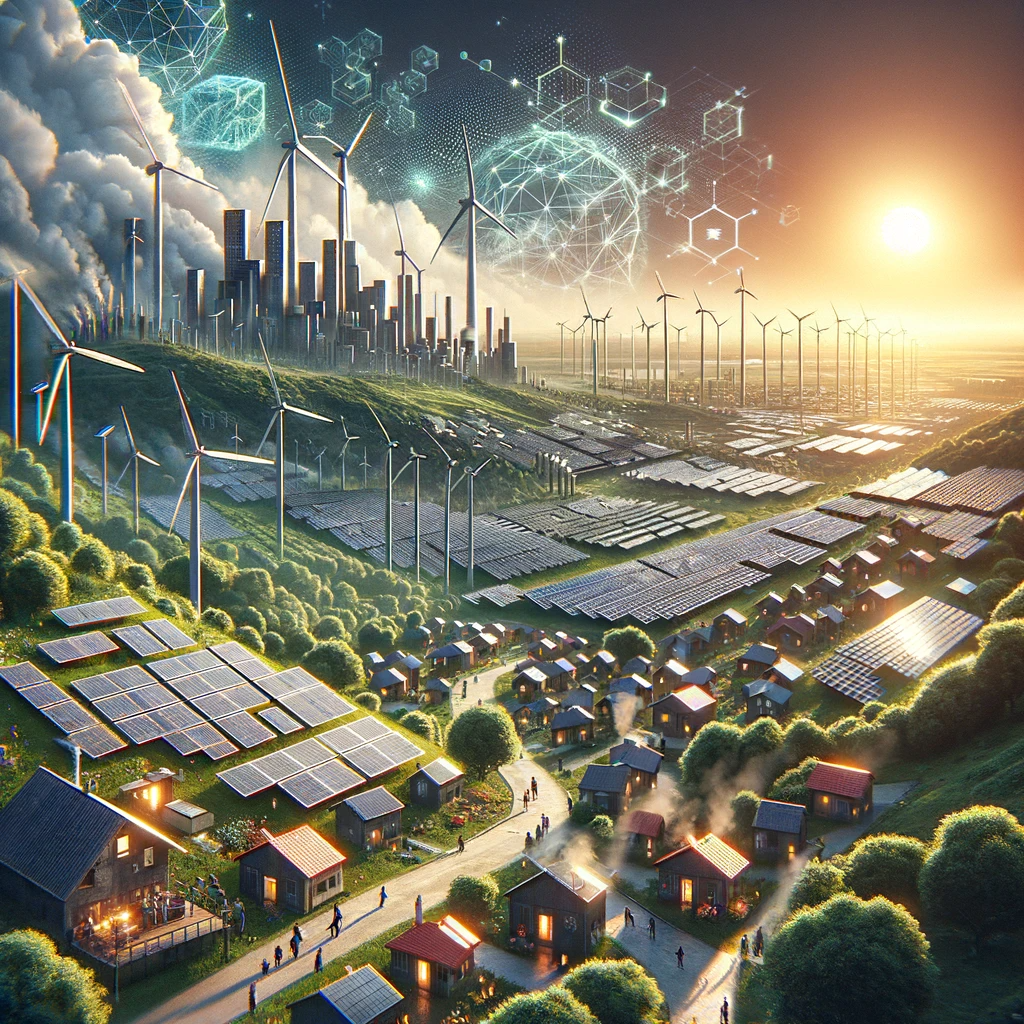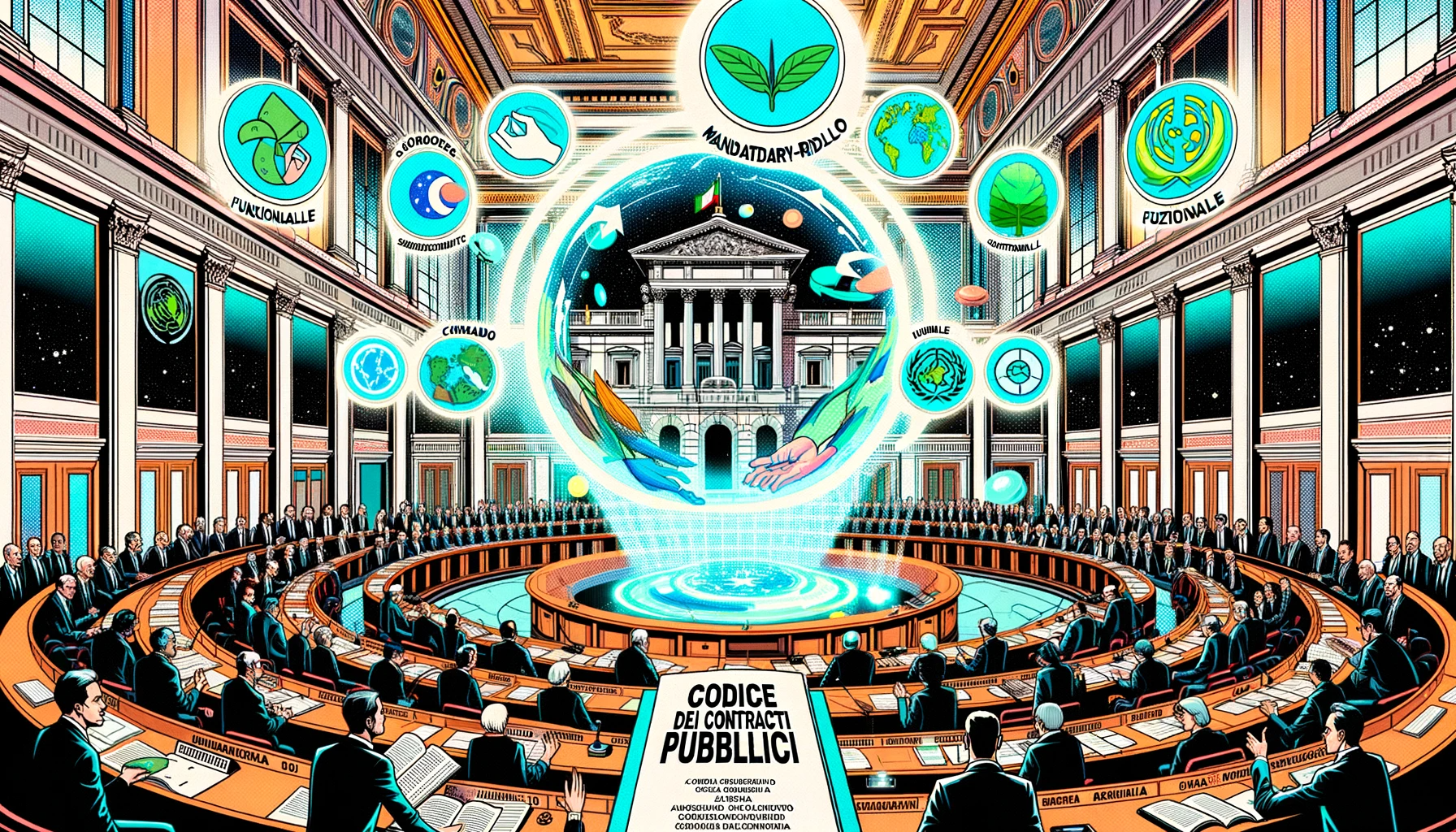Environmental law

A Green Light for a Green Aid? Between Challenges and Opportunities resulting from the European Green Deal for EU State Aid Law
Magdalena Porzeżyńska | 5 February 2024 | Issue 1/2024
The European Green Deal, a set of EU policy initiatives with the overarching aim of making Europe climate neutral by 2050, requires significant green investments mobilizing public funds. The Commission confirms that the State aid policy has an important role to play in supporting the EU in the green transition process and in achieving the European Green Deal goals. However, for this to be possible, the EU State aid rules have to be well-designed and fully aligned with these targets. This paper aims to answer the question whether the European Green Deal actually gives a long-awaited green light for more sustainable and green aid and, at the same time, whether the EU State aid regime allows the achievement of the ambitious European Green Deal goals. To this end, the author analyses the existing State aid legal framework and assesses the recent review of State aid rules following the adoption of the European Green Deal.
Read More
The regulation of renewable energy sources and the “decentralising” trend: what role for the state?
Piergiacomo Mastellone | 22 January 2024 | Issue 1/2024
Examining the “decentralising” trend that seems to be impacting public and regulatory policies on renewable energy, this paper explores how new distributed energy generation models have spread and how profound innovations brought about by Distributed Ledger Technologies have resulted in new distributed energy policies. After a general overview of the regulatory framework of the sector, the paper aims to highlight the particular social value that renewable energy has acquired through the phenomenon of energy communities. Finally, the paper will investigate the role that the state is expected to play in response to these changes.
Read More
Wild animals and their protection: between new regulations and ancient problems
Micaela Lottini | 1 September 2023 | Issue 3/2023
Section I of the Regional Administrative Court for Umbria in a recent case reaffirms the non-binding nature of the opinion of the national Institute for Environmental Protection and Research on the hunting calendar drafted by the Region under the provisions of law n. 157 of 1992, Rules for the protection of warm-blooded wildlife and for hunting. The ruling provides an opportunity to reflect on the state of legal protection of wild animals at national and EU level, in light of constitutional reform and recent regulatory amendments.
Read More
Public procurement and environmental sustainability: from a “rigid-mandatory” to a “functional” approach?
Andrea Maltoni | 12 July 2023 | Issue 3/2023
This article analyses the new text of the Public Contracts Code with reference to the principles of sustainable development and environmental protection, neither of which are expressly mentioned among the new provisions. This examination provides an opportunity to reconstruct, according to Eu and national law, the role of the contracting authorities in pursuing environmental sustainability through public procurement. The approach followed in the new Code seems to be in line with the previous mandatory-rigid approach. Nevertheless, according to the principle of trust, corrective “functional” measures can be adopted to ensure that the processes of public procurement minimize damage to the environment and foster innovation.
Read More
The development of a new model of urban regeneration in light of the digitalisation of public administration
Leonardo Scuto | 29 September 2022 | Issue 3/2022
This article aims to investigate the distinctive features of the phenomenon of urban regeneration as an expression of the principle of sustainable development, in light of the digital administration model, i.e., a new structure designed to promote the digitalisation of decision-making procedures and a transformation of administrative functions, using Information and Communication Technologies (ICT).These elements should be the principles upon which the new urban development model is to be based. The influence of ICT on environmental assessments is crucial to fully understand both the potential and challenges faced by the Italian legislator when addressing urban regeneration. The purpose of this paper is, therefore, to propose a method to achieve the best possible interaction between traditional and innovative forms of urban regeneration, trying to identify, specifically, how local authorities can take advantage of new technologies both in a procedural and environmental perspective. It is emphasized how innovative technological solutions today find their highest expression in the development of a new urban model – the renewable energy community – which is one of the means identified to pursue the goals set out by the SDG No. 11 drafted by the United Nations.
Read More
The environment as a value and the responsibility of the trustee in bankruptcy
Andrea Giordano | 15 June 2022 | Issue 2/2022
This paper focuses on the topic of environmental remediation in the case of bankruptcy or judicial liquidation of an entrepreneur, in light of the most recent legislation and case law. After going over the jurisprudential debate that has developed on the issue, the Italian Council of State, with its judgment (Plenary) no. 3/2021, stated that the presence of waste on an industrial site and the position of the keeper of the site (a position which the bankruptcy trustee would acquire at the time of the declaration of bankruptcy or following judicial liquidation), would root the “legitimatio ad causam” of the trustee. In light of Constitutional Law Feb. 11, 2022, No. 1, constitutional dignity was granted to the environment, further developing the law in this area, especially in the context of the provisions laid down in the Bankruptcy Law.
Read More
The Administrative Court of Puglia rules on agrivoltaic plants: is it possible for renewable energy and agricultural production to coexist?
Leonardo Scuto | 8 May 2022 | Issue 2/2022
With the decision n. 248/2022 of the 12th of February 2022, the Administrative Court of Puglia has ruled on aspects of the impact of a new generation of agrivoltaic plant, concluding them to be less impacting than a traditional photovoltaic plant. The Judge of first instance recognized the inadequacy of the Regional Territorial Landscape Plan of the Region of Puglia with reference to these new plant configurations, concluding agrivoltaic plants as being compatible with the agricultural and pastoral uses activities in the region.
Read More
On the terms of ARERA’s sanctioning procedure: peremptory or ordinary, this is the dilemma (note to Council of State, section VI, 17 March 2021, no. 2309)
Gianluigi Delle Cave | 14 March 2022 | Issue 1/2022
By judgment No. 2309 of 17 March 2021, the Council of State has further confirmed – overcoming the idea that the term for the conclusion of ARERA’s sanctioning procedure is merely ordinary – the peremptory nature of such term, therefore its overrun affects the challenged sanctioning measure, implying that it is unlawful. Indeed, the provision of a procedural time frame, to be determined by the Authority on a case-by-case basis, shall ensure that the time of sanction ascertainment is close to that of its punishment, thus meaning that the undue time lapse of the administrative action implies the unlawfulness of the sanction measure.
Read More
Climate protection and the inter-temporal dimension of fundamental rights: Karlsruhe for Future?
Andrea De Petris | 21 October 2021 | Issue 4/2021
This article examines the ruling by which the German Federal Constitutional Court declared on 24 March 2021 that certain provisions of the Climate Protection Act of 12 December 2019 (KSG) are unconstitutional. The national climate protection targets and the annual permissible emission volumes up to 2030 that the provision envisages were found to be incompatible with fundamental rights, as they lack sufficient requirements for further emission reductions from 2031 onwards. The ruling recognises that every freedom is potentially affected by these future emission reduction obligations because almost all areas of human life are still depending by the emission of greenhouse gases and are therefore threatened by drastic restrictions that could occur after 2030 according to the current regulation. The legislator should therefore have taken precautions to mitigate these high burdens in order to safeguard fundamental rights in an innovative ‘intertemporal’ perspective, and thus also adequately guarantee the rights of future generations.
Read More
The paper, starting from the exam of the environmental damage and its economic relevance according to damaged environmental functions, aims to analyze the subcategory of ecological prejudice as it is governed within the French legislation. The ecological prejudice, which could be subjective if it concerns the human being – both as an individual and as community – or objective if it damages nature, raises relevant questions about how damage could be repaired. Moving from the “Erika” case, in which for the first time the existence of “pure ecological prejudice” has been recognized, the paper analyses the regulatory developments of ecological prejudice from the transposition of the Directive 2004/35 into French legislation until the Law of 2016 on the reconquest of biodiversity. Finally, with brief references regarding the solutions adopted in other national legislations, it is outlined, trying to stress out the most controversial aspects, the three forms of redress introduced by the 2016 Law: primary, complementary and compensatory.
Read More